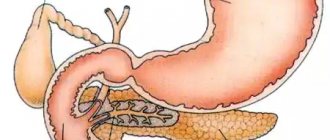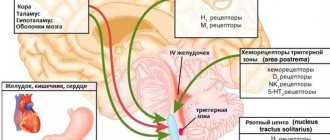Omicron is the name of a new strain of the SARS-CoV-2 virus that causes coronavirus infection. Its appearance was caused by a mutation in the genome of the causative agent of the disease. Thanks to this, it acquired new properties that distinguish it from other varieties of coronavirus. These include: a short incubation period, high infectiousness of omicron, the ability to evade the body’s immune response and cause an atypical course of the disease. In most cases, it is mild or asymptomatic, so many patients get sick at home, under the supervision of a local physician.
However, this pathogen, like its predecessors, can also provoke the development of post-Covid syndrome; in some cases, complications arise that affect the normal functioning of the respiratory and cardiovascular systems.
The main difference between the omicron strain virus particle is the structure of the spike protein. It is a structure responsible for the penetration of the infectious agent into the cells of the body. Antibodies are produced directly to this protein after an illness or vaccination, so a change in its structure makes SARS-CoV-2 more infectious and resistant to previously acquired immunity.
Causes
A fresh strain of coronavirus infection was registered by WHO on November 26, 2022. Scientists put forward several hypotheses about the reasons for the appearance of the omicron virus:
- Infection of humans from animals. It is assumed that changes in the genome of the pathogen could occur in the body of sick rodents or other animals. Viral particles then resumed circulation in the human population.
- Mutations of the virus during the long course of COVID-19 in HIV-infected people and people suffering from other types of immunodeficiency.
- The coronavirus situation is advanced in a number of countries. If laboratories are insufficiently equipped with equipment for isolating and sequencing the pathogen, new strains and gene mutations may appear that escape the attention of scientists.
- Low rates of herd immunity. In the body of persons who have not been vaccinated, conditions for prolonged circulation and mutations in virus particles are more favorable. Poor vaccination efforts in some countries, including South Africa, may have contributed to the emergence of a new strain of SARS-CoV-2.
Infection with the omicron strain of COVID-19 is possible through close contact with a person who releases virus particles into the external environment through coughing and sneezing.
This can also happen if you enter a room where a carrier of the infection has stayed for a long time. Pathogens enter the body through the respiratory tract, less often through the mucous membrane of the eyes, bind to cell receptors and begin to rapidly multiply. Thanks to mutations in the coronavirus genome, the Omicron strain? unlike alpha, delta and gamma, it is more contagious, can cause disease even in the presence of antibodies in recovered and vaccinated people, it is more severe in children, and has a tendency to damage the upper respiratory tract rather than the lungs.
Causes of taste in mouth
Salty, oily, bitter – there are a lot of tastes in the mouth. This is unpleasant and incomprehensible to many. But doctors note that a bland taste in the mouth is not always a symptom of the disease. Sometimes, it's just a failure/disruption of some body systems.
Support the publication
- Join the CLAN
Or
There are 5 main reasons for a persistent taste in the mouth:
- Poor oral hygiene. The most common and elementary diagnosis that doctors have to make. Many people simply do not know how to brush their teeth correctly. Therefore, food remains remain on the tongue, cheeks, gums and begin to decompose.
- Taking medications. Some types of drugs affect taste buds. They are the ones who can change the taste in your mouth. After a course of administration, the taste disappears.
- Diseases. Diseases are: infectious, chronic, viral. In any case, the stable and correct functionality of the organs is disrupted. The body spews out toxins, and they cause a taste in the mouth.
- Bad habits. Smoking, frequent drinking of alcohol, overeating can cause: a taste of onion in the mouth, a taste of lime in the mouth. Due to overeating, the intestines do not have time to cope with food processing. Toxins from cigarettes settle in the mouth. Alcohol kills the good microflora inside, thereby weakening the immune system.
- Hormones. Any hormonal changes affect the taste in the mouth. But the reason why hormonal levels change should be found out from specialized endocrinologists.
Symptoms
The manifestations of the disease with the new strain of coronavirus Omicron are similar to the symptoms of a cold.
The disease often occurs in a mild and often completely asymptomatic form. After 2-3 days or already the next day from the moment of infection, the following manifestations of COVID-19 may be observed:
- impaired nasal breathing, sneezing;
- sore and sore throat;
- general weakness, fatigue, decreased performance;
- moderate headache
- diarrhea;
- muscle pain;
- dry cough;
- nausea, vomiting;
- chills, fever;
- inflammation of the mucous membrane of the eyes;
- rashes on the body;
- loss of taste and ability to smell.
The temperature during omicron infection in most cases does not exceed 38 °C.
In complicated cases, it can rise to higher values, difficulty breathing occurs, the cough intensifies, a feeling of tightness and chest pain appear. In contrast to the symptoms caused by previous strains of coronavirus, infection with Omicron in adult patients is accompanied by more severe weakness and body aches, a throbbing headache, in some cases low body temperature, and in children - a skin rash.
The duration of the disease and manifestations depend on the state of immunity, treatment, and concomitant pathologies. In most cases, symptoms of omicron persist for 5-10 days, unless complications develop.
Complications
The disease caused by the omicron strain, as in cases of infection with other variants of SARS-CoV-2, may be accompanied by increased thrombus formation with subsequent thrombosis of the veins of the lower extremities, pulmonary embolism, heart attack and stroke.
Post-Covid syndrome can develop within three months after recovery, even if the disease was mild or asymptomatic, and persist for up to eight months. It is associated with persistent inflammation, excessive activation of the immune system, and neurological disorders. It is more pronounced in women who have been infected with Omicron or other strains of coronavirus.
Symptoms of this condition include:
- weakness and fatigue;
- dyspnea;
- increase in body temperature to 37-37.5 ° C;
- disruption of the digestive system;
- sleep disorder;
- anxiety;
- depression;
- decreased concentration.
Possible complications of the infection also include pneumonia, meningoencephalitis, autoimmune lesions of the peripheral nervous system, hyperreaction of the immune system - cytokine storm. In children, infection with Omicron can also lead to the development of bronchiolitis, an inflammatory process in the bronchioles, leading to their blockage.
Chalky taste in women
A woman has such taste for a reason. Frequent and partial reasons for the appearance of taste: chalk, iron, herring in girls are changes in hormonal levels. Hormonal levels change during PMS and pregnancy.
Doctors explain this: In the first trimester, women eat excessive amounts of food. Without proper nutrition, they disrupt the functioning of the gastrointestinal tract. In the second trimester, appetite decreases significantly, and nutrition returns to normal. But the consequences remain. Heartburn, burning, excess weight. It is heartburn that contributes to the appearance of an unpleasant taste in the mouth, belching and odor.
The body's functioning processes are restored with the help of a harmonious diet and vitamin intake. They are prescribed by a general practitioner or your treating gynecologist.
Diagnostics
There are no specific signs characteristic exclusively of infection with the omicron strain.
In a pandemic, at the first symptoms of acute respiratory infections, in order to clarify the diagnosis, experts advise performing PCR testing for COVID-19 or ICA - rapid testing for the COVID-19 antigen. To obtain reliable results, since the Omicron strain coronavirus has a short incubation period and often occurs in a mild form, the study should be carried out already on the 3-4th day after the initial signs of the disease appear. According to indications, a study of immunoglobulins of class A, M, G SARS-CoV-2 is also carried out.
Nonspecific laboratory diagnostics for omicron infection is required for persons with moderate, severe and extremely severe disease. It assumes:
- clinical blood test to determine the level of leukocytes;
- biochemical blood test (ALT, AST, creatinine), determination of procalcitonin and inflammatory markers (C-reactive protein, ferritin);
- assessment of blood clotting according to coagulogram, D-dimer;
- determination of hormone levels in the blood.
To detect pathological changes in the lung tissue, a plain chest x-ray or computed tomography of the lungs is performed. The latter is indicated only for symptoms of respiratory failure and low levels of blood oxygenation.
What to do and who to contact?
A therapist will help you deal with this problem.
How he will do it:
- Recognizes patient complaints and symptoms. Ask questions about nutrition, sleep patterns, and oral hygiene. Will conduct an inspection.
- Prescribe the necessary blood and urine tests. Thus, it will find out which vitamins are missing, and whether there are any diseases that contribute to unpleasant taste sensations.
- Based on test results and symptoms, he will prescribe medications. Will tell you detailed steps and solutions for bad taste in mouth.
If the test results show that there are infectious or viral diseases in the body, the doctor is obliged to redirect you to a specialized medical specialist.
Remember! If there is any deviation of your immune system from the norm, you should consult a doctor. Only they can prescribe the correct and necessary treatment to solve problems. And our article will help you find out the possible reasons and not panic until a specialist’s verdict.
Treatment
The examination and management of patients is carried out by general practitioners, pediatricians, and, if necessary, infectious disease specialists and doctors in the intensive care unit.
For mild cases of COVID-19 caused by the causative agent of the Omicron strain, treatment is aimed at increasing the body’s defenses, quickly eliminating the infection, alleviating symptoms and preventing the development of complications. For this purpose, it is recommended to drink plenty of fluids, rest in bed, regularly ventilate the room and humidify the air. Antipyretic drugs are used at temperatures above 38.0 ° C, sprays, lozenges and gargles are used to relieve sore throats, and for dry coughs, herbal infusions and cough suppressants are used. It is possible to use alpha-interferon drugs.
In some cases, on the recommendation of a doctor, specific antiviral therapy (favipiravir, molnupiravir), anticoagulants, glucocorticosteroids, interleukin inhibitors and receptor antagonists, plasma and human antibodies from recovered or vaccinated people are prescribed. Severely ill patients may require oxygen support or tracheal intubation for mechanical ventilation, parenteral administration of saline and colloid solutions.
Prognosis and prevention
How long COVID-19 caused by omicron lasts depends on concomitant diseases, the state of immunity, the timeliness and correctness of the treatment.
Since the disease is usually mild and complications are less common, the prognosis is most often favorable. However, the high infectivity of the pathogen and, accordingly, a large number of patients seeking outpatient care can overwhelm the healthcare system. In this regard, the prevention of infection with omicron is so important. This includes the following activities:
- use of personal respiratory protection – masks and respirators;
- frequent hand washing and disinfection, use of gloves;
- maintaining social distance of 1.5-2 meters in crowded places.
Vaccination plays a special role in the fight against coronavirus. Scientists have confirmed the effectiveness of the drugs “Sputnik V” and “Sputnik Light” against the omicron strain. The risk of infection remains even after vaccination, but thanks to the vaccine, the virus can be blocked at the initial stage of penetration into the body, making the disease more likely to be mild or asymptomatic.
What diseases can result from the taste of liver in the mouth?
We stated earlier that the taste in the mouth in 97% of cases is affected by diseases of the gastrointestinal tract. But the main problem for many is figuring out what the taste is from. There are two options here:
- Pathological sensations from illness.
- Physical influence (false teeth, overeating, smoking, alcohol).
Gastrointestinal diseases that will cause an unpleasant taste in the mouth:
- Liver diseases. You will taste blood in your mouth.
- Acute renal failure. Dry mouth will occur.
- Pancreatitis. Accompanied by a chalk taste in the mouth.
- Peretonitis. There will also be a feeling of dryness and oiliness.
- Stomach and duodenal ulcers. This will give you a fishy taste in your mouth.
- Gastritis. There will be no special tastes, but against the background of the disease the taste of onions will be felt.
- High cholesterol will not only manifest itself in the form of diabetes, but will also cause a sweet, metallic taste and even odor from the breath.
Moreover, an incorrect diet and unbalanced fluid intake will affect your general condition. Due to lack of water in the body, the oral cavity will always be dry and have a stagnant odor. Dry hair and chapped lips.
Physical impact:
- Implanted teeth. Low-quality and cheap material from which dentures are made will lead to a strong odor from a person’s mouth.
- Poor nutrition with constant overeating will affect the release of toxins from the gastrointestinal tract. Which also causes an oily taste in the mouth.
- Smoking. Promotes damage to tooth enamel, tooth decay in particular. Toxins found in cigarettes are absorbed into the walls of the mouth, drying it out.
- If you drink alcohol frequently, you may experience an earthy taste in your mouth.
Therefore, doctors recommend:
- Get rid of negative habits.
- Balance your diet.
- Eat as many vegetables and fruits as possible.
- Meet your daily activity requirement.
- Cut down on alcohol consumption.







